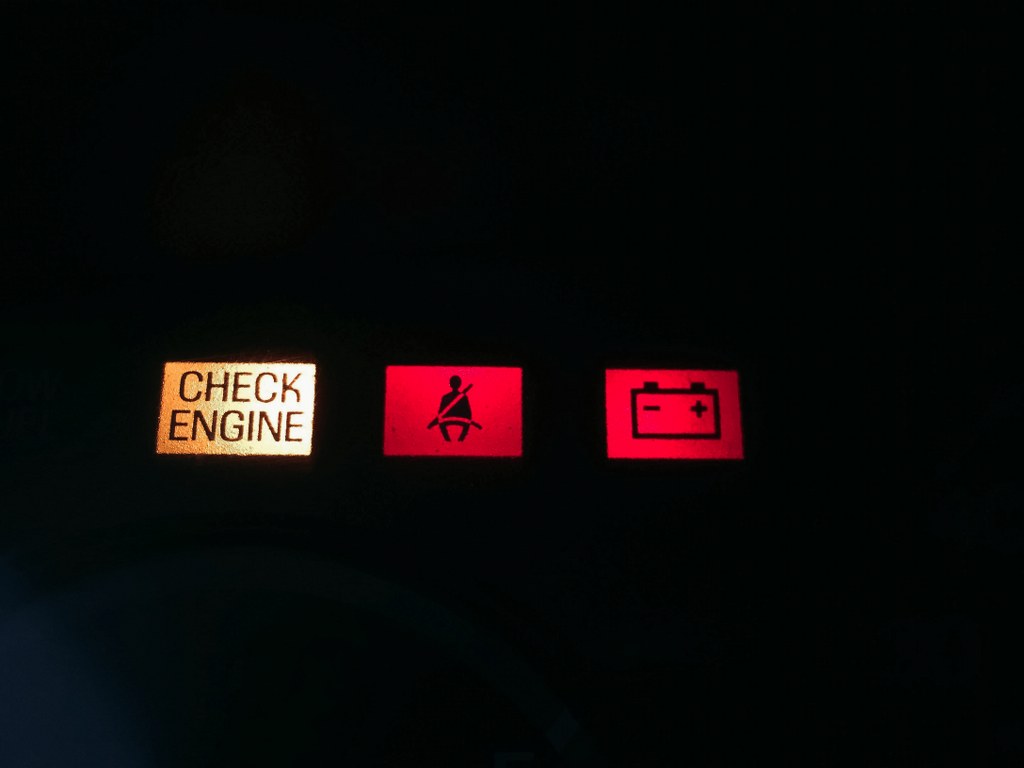Reason Why Check Engine Light Comes On - Have you ever found yourself driving down the road and suddenly the check engine light comes on? It's a frustrating experience and can leave you feeling helpless. But don't worry, we're here to help! In this post, we'll cover some common reasons why the check engine light may come on, as well as tips on what you can do to address the issue.
Check Engine Light Comes On and Off - Why is This Happening?
1. Loose or Damaged Gas Cap

One of the most common reasons why the check engine light may come on and then turn off is a loose or damaged gas cap. A gas cap that is not tight enough can cause the fuel vapors to leak and trigger the check engine light. If the gas cap is damaged, it can also cause similar issues.
To fix this issue, simply tighten the gas cap or replace it if it is damaged. Once you do this, the check engine light should turn off on its own within a few days of driving.
2. Faulty Oxygen Sensor

The oxygen sensor is responsible for measuring the amount of oxygen in your car's exhaust system. If this sensor is faulty or malfunctioning, it can cause the check engine light to turn on. You may also notice a drop in fuel efficiency and a change in engine performance.
To address this issue, you'll need to take your car to a mechanic. They will be able to properly diagnose the issue and replace the sensor if necessary.
3. Malfunctioning Catalytic Converter

The catalytic converter is responsible for converting harmful emissions into less harmful ones. If this component is malfunctioning, it can cause the check engine light to turn on. You may also notice a decrease in engine performance and a drop in fuel efficiency.
It's important to have your car inspected if you suspect that your catalytic converter is malfunctioning. If left untreated, a faulty converter can cause damage to other components of your car and result in costly repairs.
What Should You Do if Your Check Engine Light Comes On?
1. Check the Gas Cap
If your check engine light comes on, the first thing you should do is check the gas cap. Make sure that it is tight and not damaged. If it is loose or damaged, replace it or tighten it and wait a few days to see if the light goes off on its own.
2. Check Your Dashboard for Other Warning Lights
If your check engine light is on, you may also see other warning lights on your dashboard. Take note of these and bring them to the attention of your mechanic. This can help them diagnose the issue more quickly and accurately.
3. Check for Strange Smells or Noises
If your check engine light is on, pay attention to any strange smells or noises coming from your car. This can also help your mechanic diagnose the issue more accurately.
4. Take Your Car to a Mechanic
If you're unable to diagnose and fix the issue yourself, take your car to a mechanic as soon as possible. Ignoring a check engine light can lead to more serious issues down the road and result in costly repairs.
Why is My Check Engine Light On?
1. Faulty Spark Plugs

The spark plugs are responsible for igniting the fuel in your engine. If they are worn or damaged, they can cause the check engine light to turn on. You may also notice a drop in fuel efficiency and engine performance.
To address this issue, you'll need to take your car to a mechanic. They will be able to properly diagnose the issue and replace the spark plugs if necessary.
2. Low Battery Voltage

If your car's battery voltage is too low, it can cause the check engine light to turn on. This is often due to a faulty alternator or battery. You may also notice that your car is having trouble starting or that your lights are dimmer than usual.
To address this issue, you'll need to take your car to a mechanic. They will be able to properly diagnose the issue and replace the alternator or battery if necessary.
In Conclusion
While it's never fun to see the check engine light come on, it's important to address the issue as soon as possible. Ignoring the light can lead to more serious and costly problems down the road. If you're unable to diagnose and fix the issue yourself, take your car to a mechanic. They will be able to properly diagnose the issue and recommend the necessary repairs.
Read more articles about Reason Why Check Engine Light Comes On